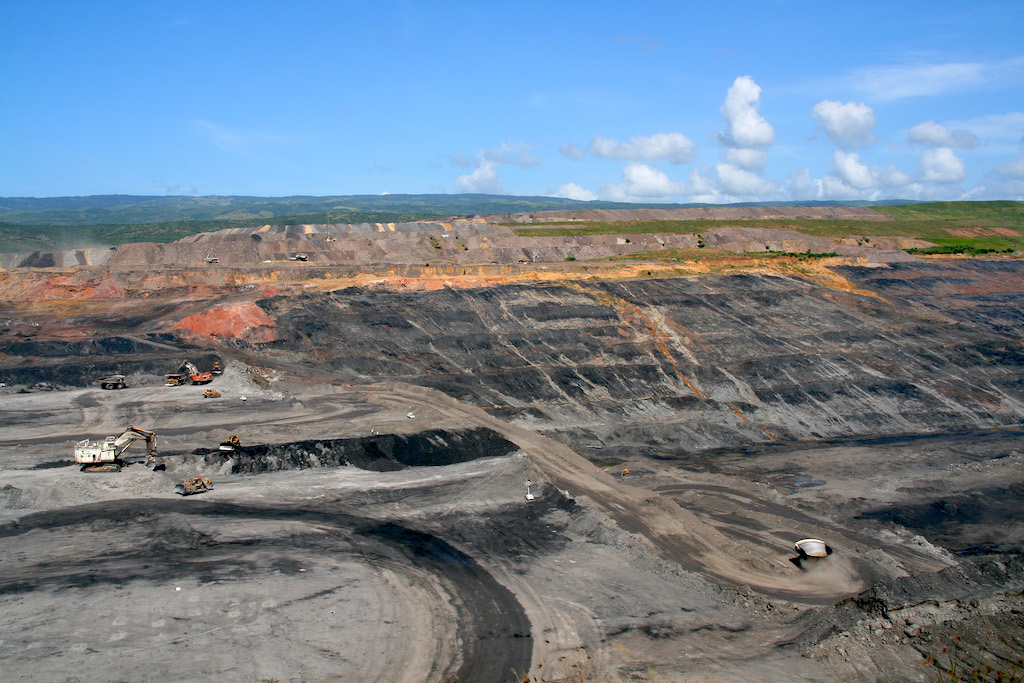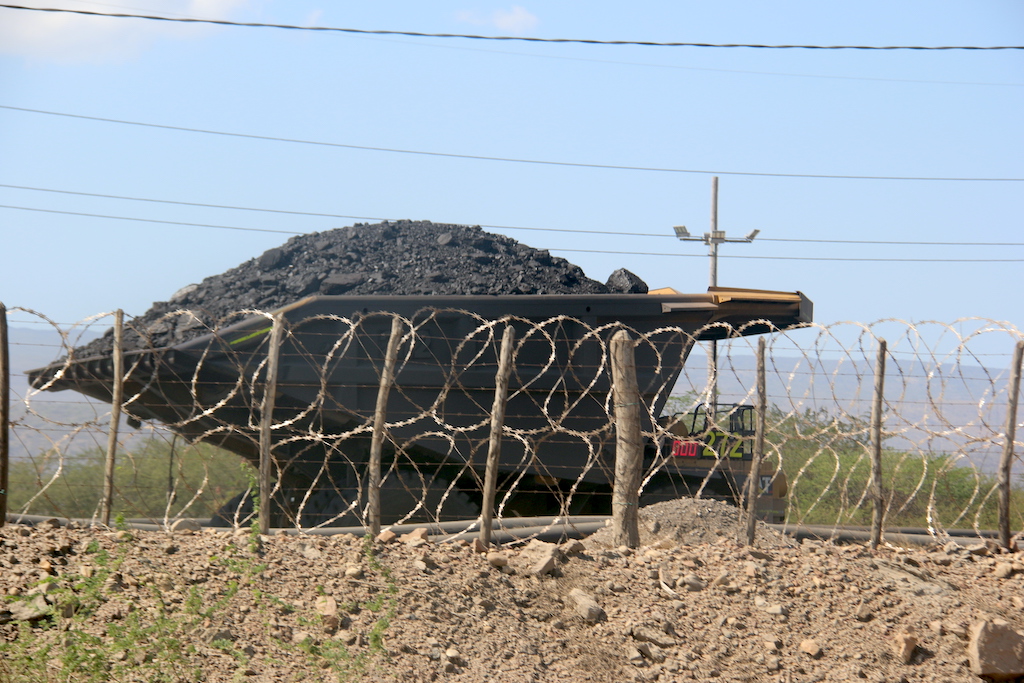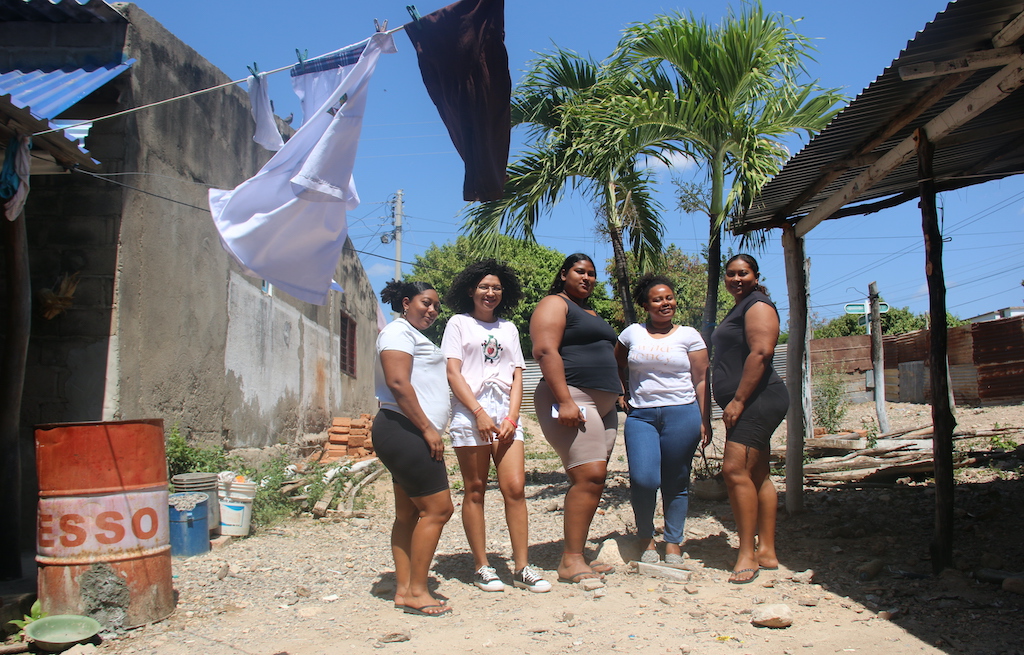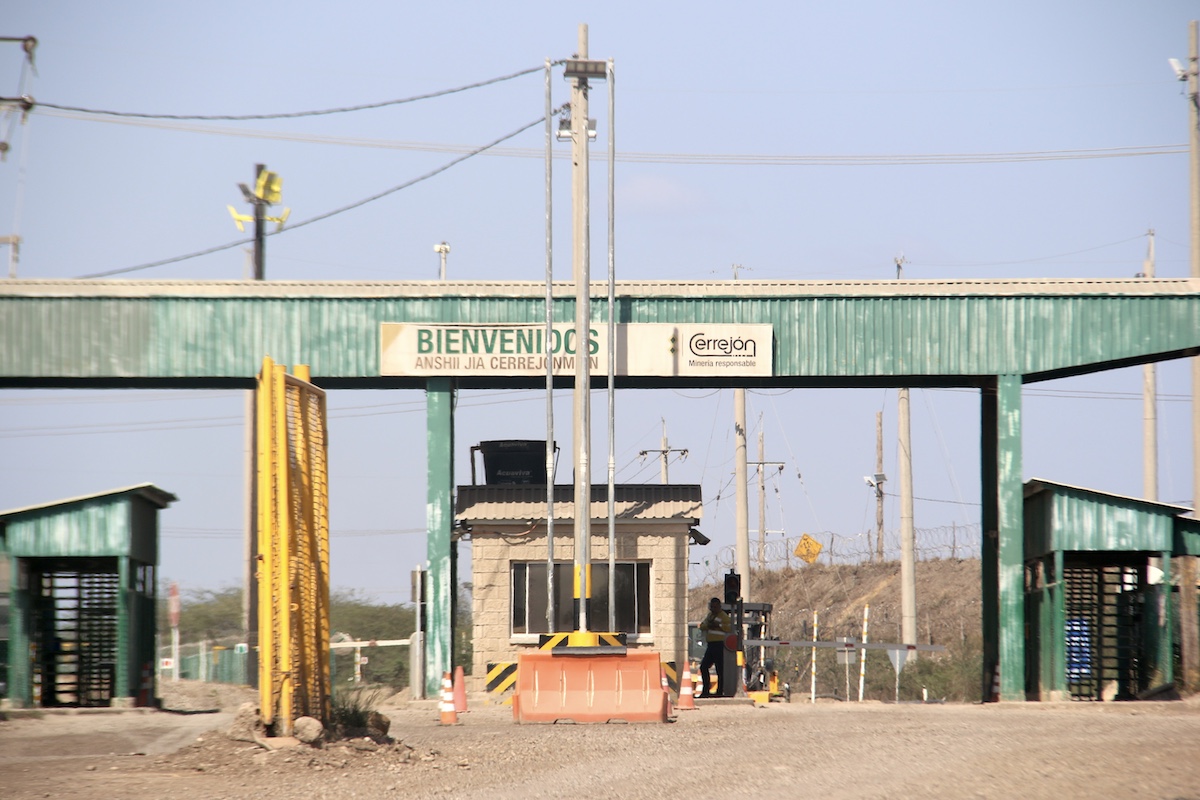La Guajira– The desert wind carries more than just sand. It also carries coal dust, which coats the homes of the Wayúu people — the indigenous guardians of this arid corner of northern Colombia. For decades, they have watched trucks from Glencore’s Cerrejón mine rumble past their villages, kicking up clouds of dust that settle on their skin and in their lungs, as well as in the scarce water on which they depend.
Their wells, once symbols of life, have turned dark and bitter. The water is unsafe to drink due to contamination from mining runoff. Children are falling ill. Crops wither. Yet the mine continues to expand.
For the communities surrounding Cerrejón, accountability has always seemed just out of reach. And now, due to political backtracking in distant Brussels, it may drift even further away. The European Union's decision to roll back its flagship corporate accountability laws — the Corporate Sustainability Reporting Directive (CSRD) and the Corporate Sustainability Due Diligence Directive (CSDDD) — has created new shadows where transparency once promised light.
These delays and watered-down obligations allow multinational corporations such as Glencore to operate with less scrutiny, while European investors and governments continue to brand their financial flows as 'green'. In effect, the EU’s retreat on corporate accountability is not just a bureaucratic adjustment; it is a lifeline for polluting giants and a death sentence for communities already struggling under coal dust.
The Cerrejón mine, which is fully owned by the Swiss company Glencore, is one of the largest open-pit coal mines on Earth. It is located in Colombia's La Guajira region, a dry landscape where every drop of water is precious. Over the years, Indigenous Wayúu and Afro-Colombian families have been displaced to make room for mine expansion. The streams that sustained their livestock and crops have been diverted or dried up entirely.
Colombian courts have repeatedly ordered Cerrejón to restore water access and protect residents“health. The Supreme Court recognised the right to water as fundamental and demanded environmental remediation. Yet Glencore has been slow to comply, and enforcement remains weak. The company's denials, public relations campaigns and legal appeals have largely left its operations unscathed.
International pressure once seemed to be the missing piece — the leverage that could compel change. However, this depended on European investors and regulators holding Glencore to higher standards through transparent sustainability legislation. This hope is fading fast.
The EU’s broken promise allows greenwashed investments
Europe’s sustainability revolution was intended to usher in a new era of corporate accountability. The CSRD and CSDDD were designed to require companies, both European and foreign, to track, mitigate and publicly report their environmental and human rights impacts across global supply chains.
Under the original plan, large companies, including non-EU firms conducting significant business in Europe, were due to begin disclosing information in 2025. These rules would have forced investors to look beyond attractive sustainability labels and recognise the true cost of their portfolios.
However, following intense lobbying from industry groups, the European Commission announced a 'simplification' initiative under the Omnibus Law, which was formally approved in April 2025. What began as a technical revision has become a sweeping rollback. Enforcement of these rules has now been delayed by at least two years, and the toughest penalties, such as turnover-based fines or civil liability, have been reduced or removed. Companies now only have to reassess risks once every five years instead of annually, and they only need to adopt transition plans, not implement them.
Even more damagingly, the revised rules exempt a large number of smaller companies and relax disclosure obligations. The once clear duty to monitor pollution, human rights abuses and climate harm has turned into a patchwork of optional transparency.
For multinationals like Glencore, this weakening of oversight is an open door. Although Glencore is headquartered in Switzerland, its substantial European presence — accounting for around 27% of its global sales, worth over €60 billion — means it should be subject to EU reporting and due diligence rules. However, with implementation postponed until 2027–2028, the company is enjoying a legal grace period, shielded from meaningful accountability.

The consequences of these delays extend beyond legal technicalities to affect the entire “sustainable finance” ecosystem. Under the EU's Sustainable Finance Disclosure Regulation (SFDR), asset managers are only required to disclose the environmental impacts of their portfolios if these impacts are known.
However, with new EU laws postponing and softening corporate disclosure, fewer negative impacts will officially be 'known'. This enables investment funds to continue to brand themselves as green or ethical while holding shares or bonds in polluting companies such as Glencore.
In other words, the EU’s regulatory gaps now enable institutionalised greenwashing. Asset managers can claim ignorance of Glencore’s abuses yet still market “sustainable” funds that profit from coal extraction in La Guajira.
Since the SFDR came into force in 2021, asset managers have invested an average of $790 million per quarter in Glencore through their green funds. However, due to the Omnibus Law's loopholes, the Wayúu people’s contaminated rivers and empty wells will remain invisible in European financiers' spreadsheets, which continue to pour money into Glencore’s bonds and shares while reassuring clients that the investments meet EU sustainability standards. The truth, buried under delayed disclosures and weakened obligations, is that these responsible-looking funds are sponsoring a mine that is destroying the very environment and communities they claim to protect.
Water pollution is no longer on eco-investors’ radar
Prior to the changes introduced by the Omnibus Law, the EU’s sustainability reporting rules required companies to provide detailed, site-specific data on their pollution. For a mining company such as Glencore, this meant publishing precise figures on how much waste and chemicals were being released into the air, soil and, in particular, water. Companies also had to explain how the data was collected, how accurate it was, and which methods were used.
This framework would have enabled European regulators, investors and civil society to trace the environmental footprint of Cerrejón’s mine in Colombia and compare it to international norms. In practice, it could have highlighted the impact of Cerrejón’s coal extraction on the rivers and groundwater relied upon by the Wayúu people. Had the EU standards been fully implemented, they could have exposed pollution that is often hidden behind corporate statements and selective sustainability reports used by asset managers to create their portfolio of so-called sustainable investments.
However, the Omnibus Simplification Package has changed that. First, the reform removed sector-specific reporting standards, meaning industries such as mining no longer face special requirements reflecting their particular environmental risks. Without a mining-specific rule, Glencore is no longer obliged to disclose detailed information about water pollution at the Cerrejón site.

Secondly, companies now have far more freedom to decide which environmental issues they consider “material”. In practice, this means that Glencore can choose to treat local water pollution in Colombia as irrelevant to its European investors and thus omit that information entirely. Mandatory site-level reporting has become voluntary, leaving affected communities invisible in official disclosures.
Thirdly, even when companies do share data, verification standards have weakened. Previously, reports were required to undergo “reasonable assurance”, meaning they had to be thoroughly checked by independent auditors. Now, under “limited assurance”, reviews are lighter and less rigorous. Any pollution figures that Glencore does disclose are less likely to be challenged or verified.
For the Wayúu communities living around Cerrejón, this reduction in oversight has real consequences. Their long fight to prove that mining activities are poisoning their water now faces another barrier in the form of the absence of reliable, public data. European investors, who might previously have used the mine’s environmental record as leverage to demand change, now have less information on which to base their decisions.
In effect, the Omnibus reforms enable companies to improve their public image while continuing to pollute. It will be more difficult to link the Wayúu’s complaints to verified corporate data, which weakens their ability to demand justice. What was once a potential tool for transparency and accountability has become a shield for multinational polluters.
By diluting its own rules, the EU has unintentionally made it easier for companies like Glencore, as well as asset managers investing in the multinational through green-labelled funds, to hide the human and environmental cost of their operations — especially the suffering experienced by Indigenous Colombian communities who already live with the daily reality of water scarcity and contamination.
In 2023, MSCI – a leading environmental, social and governance (ESG) rating agency – issued a “red flag” warning against Glencore, damaging its credibility among investors. MSCI had determined that Glencore had failed to adhere to the United Nations Global Compact Principles, particularly with regard to water management issues at Cerrejón. However, Glencore successfully pressured MSCI to remove the warning, which critics interpret as an example of corporate power overriding accountability mechanisms. This incident demonstrates that, in the absence of rigorous regulatory oversight, the private ESG assessments used by asset managers to develop eco-friendly investment portfolios can be easily manipulated, thereby enabling greenwashing across the financial system. As a result, European investors may continue to support Glencore’s operations under the guise of “sustainable investment”, unaware of their indirect role in perpetuating harm.
The human cost of Europe’s unfair climate diplomacy
The hypocrisy of Europe’s position becomes stark when viewed through the lens of its energy policy. Officially, the EU champions a global transition away from fossil fuels and touts its climate cooperation with Colombia as proof of ethical partnership.
Yet behind the diplomatic smiles lies a troubling truth: coal imports from Colombia to Europe have surged since Russia’s invasion of Ukraine in 2022. As Germany and other nations scrambled to replace Russian gas, they turned back to coal – much of it mined at Cerrejón.
This spike in demand has deepened the social and environmental crisis in La Guajira. While the EU celebrates renewable-energy investments in Colombia, these gestures pale in comparison to the profits reaped by European utilities and Glencore from the ongoing coal trade. The aid Europe provides to Colombia’s “energy transition” is a token sum compared to the coal-driven revenues fueling the very harm the EU claims to oppose.
The result is a twofold injustice: first, the climate injustice of continuing to burn coal, worsening droughts and water scarcity worldwide – including in La Guajira itself; and second, the social injustice of allowing Indigenous communities to bear the toxic burden of Europe’s energy security.
Both parties are committed to upholding human rights and environmental protection under the EU-Colombia trade agreement. However, these clauses have proven toothless. Even though Colombian courts documented Cerrejón’s violations, European authorities remained silent.
The EU’s accountability mechanisms are frozen until the Corporate Sustainability Due Diligence Directive (CSDDD) finally enters into force, which is not expected to happen before 2027. Until then, no European government will be able to impose sanctions on companies that neglect abuses in their supply chains.
This legal void enables European power producers to continue importing Colombian coal unhindered. Internal company reports acknowledge awareness of the allegations surrounding Cerrejón, yet reveal no evidence of thorough on-the-ground due diligence. The delayed EU rules provide them with cover: without legally binding obligations, they can claim to be compliant while ignoring the suffering caused by their supply chains.
For the Wayúu communities, the consequences of this regulatory retreat are tangible. They continue to struggle for clean water and land rights in courts and protests that rarely make European headlines. Each time enforcement is postponed in Brussels, it means another year of contaminated wells, another lost harvest, and another child sickened by coal dust.

The mine’s expansion has torn apart villages such as Tamaquito and Roche, displacing families who have lived there for generations. Promised compensation rarely materialises. Public consultations, which are mandated by Colombian law, are often rushed or merely symbolic. When they speak out against the mine, the people’s voices are drowned out by Glencore’s well-funded PR machine.
Glossy advertisements in the Colombian media paint Cerrejón as a responsible corporate citizen, showing the company planting trees, funding schools and “empowering” indigenous women. However, behind this narrative lies a grim reality of shrinking access to water, contaminated soil and broken promises.
The weakening of EU rules only serves to reinforce this imbalance of power. It signals to Glencore and other such giants that they can negotiate, postpone or quietly erase accountability.
Transparency Lost. Trust Betrayed
The European Commission's reason for postponing the sustainability framework was administrative simplification, with the aim of reducing the workload for companies that are finding it hard to adapt. However, it is not small family businesses that will benefit, but rather global multinationals with vast resources.
By succumbing to lobbying pressure, EU policymakers have effectively traded transparency for convenience. What they call “simplification” is, for La Guajira, a continuation of exploitation.
The absence of rigorous disclosure also prevents responsible investors from accessing the information they need to make informed decisions. Without clear data on Glencore’s environmental footprint or its human rights record in Colombia, asset managers cannot fulfil their own sustainability obligations. The entire green finance system collapses when transparency is removed from the equation.
Europe’s credibility as a climate leader hinges on there being coherence between its values and its actions. However, the EU's delay in enforcing corporate accountability rules reveals a troubling dissonance. It condemns deforestation in the Amazon while financing coal extraction in Colombia, nearby. It champions indigenous rights in international forums while enabling their dispossession through lax regulation.
This contradiction undermines not only the EU’s moral authority but also its practical ability to drive global change. When corporations see that sustainability commitments are negotiable, they treat them as branding tools rather than binding duties.
Back in La Guajira, the Wayúu elders continue to fight. They organize community assemblies under the scorching sun, document polluted streams, and send petitions to courts and NGOs. Their message is clear: water is life, and no profit can justify its theft.
Local activists say that they had pinned their hopes on the EU’s new due-diligence regime, believing it would finally expose the dirty secrets behind “green” European investments. Instead, they find themselves victims of a legislative u-turn that places corporate comfort above human survival.
For them, every delay in Brussels is another year without justice.
The story of Cerrejón is not an isolated tragedy – it is a mirror reflecting the global imbalance between the North’s consumption and the South’s suffering. The EU’s watered-down sustainability laws may shield investors from discomfort, but they cannot wash away the coal dust staining their hands.
As the world edges closer to climate tipping points, true sustainability cannot be built on loopholes. Accountability delayed is accountability denied. And in Colombia’s dry, wounded lands, denial takes the form of poisoned wells and silenced voices.
“The EU’s retreat on corporate accountability has tangible victims: Indigenous families in La Guajira, whose lives are bound to the fate of their land and water,” said an activist who wished to remain anonymous to avoid intimidation and threats from groups complicit with Cerrejón. “By delaying and diluting its sustainability directives, Europe has allowed companies like Glencore to continue harmful practices behind a veil of green finance and diplomatic rhetoric.”
What was intended as a framework for justice has become a framework for evasion. Until the EU restores the strength and urgency of its sustainability laws, the Wayúu will remain the unseen casualties of Europe’s legal procrastination.
“The coal that powers European homes and generates profits for European investors is extracted at the cost of human dignity. And no label of ‘responsibility’ can conceal that truth forever,” said our anonymous source.
Stefano Valentino is a Bertha Challenge Fellow 2024
O
Do you like our work?
Help multilingual European journalism to thrive, without ads or paywalls. Your one-off or regular support will keep our newsroom independent. Thank you!













Join the discussion
Become a member to translate comments and participate